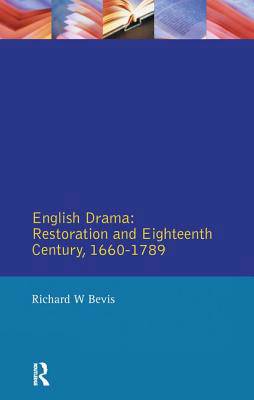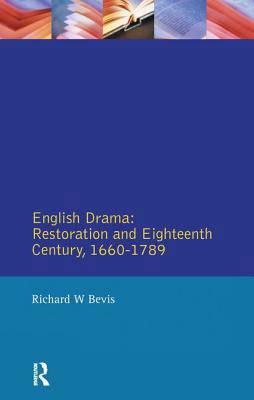
En raison d'une grêve chez bpost, votre commande pourrait être retardée. Vous avez besoin d’un livre rapidement ? Nos magasins vous accueillent à bras ouverts !
- Retrait gratuit dans votre magasin Club
- 7.000.000 titres dans notre catalogue
- Payer en toute sécurité
- Toujours un magasin près de chez vous
En raison de la grêve chez bpost, votre commande pourrait être retardée. Vous avez besoin d’un livre rapidement ? Nos magasins vous accueillent à bras ouverts !
- Retrait gratuit dans votre magasin Club
- 7.000.0000 titres dans notre catalogue
- Payer en toute sécurité
- Toujours un magasin près de chez vous
206,45 €
+ 412 points
Format
Description
What were the causes of Restoration drama's licentiousness? How did the elegantly-turned comedy of Congreve become the pointed satire of Fielding? And how did Sheridan and Goldsmith reshape the materials they inherited? In this account of the entire period, Richard Bevis argues that none of these questions can be answered without an understanding of Augustan and Georgian history. The years between 1660 and 1789 saw considerable political and social upheaval, which is reflected in the eclectic array of dramatic forms that is Georgian theatre's essential characteristic.
Spécifications
Parties prenantes
- Auteur(s) :
- Editeur:
Contenu
- Nombre de pages :
- 356
- Langue:
- Anglais
- Collection :
Caractéristiques
- EAN:
- 9781138149557
- Date de parution :
- 01-09-16
- Format:
- Livre relié
- Format numérique:
- Genaaid
- Dimensions :
- 140 mm x 216 mm
- Poids :
- 557 g

Les avis
Nous publions uniquement les avis qui respectent les conditions requises. Consultez nos conditions pour les avis.






